Yicheng Fan
LayerNAS: Neural Architecture Search in Polynomial Complexity
Apr 23, 2023Abstract:Neural Architecture Search (NAS) has become a popular method for discovering effective model architectures, especially for target hardware. As such, NAS methods that find optimal architectures under constraints are essential. In our paper, we propose LayerNAS to address the challenge of multi-objective NAS by transforming it into a combinatorial optimization problem, which effectively constrains the search complexity to be polynomial. For a model architecture with $L$ layers, we perform layerwise-search for each layer, selecting from a set of search options $\mathbb{S}$. LayerNAS groups model candidates based on one objective, such as model size or latency, and searches for the optimal model based on another objective, thereby splitting the cost and reward elements of the search. This approach limits the search complexity to $ O(H \cdot |\mathbb{S}| \cdot L) $, where $H$ is a constant set in LayerNAS. Our experiments show that LayerNAS is able to consistently discover superior models across a variety of search spaces in comparison to strong baselines, including search spaces derived from NATS-Bench, MobileNetV2 and MobileNetV3.
Attributed Text Generation via Post-hoc Research and Revision
Oct 17, 2022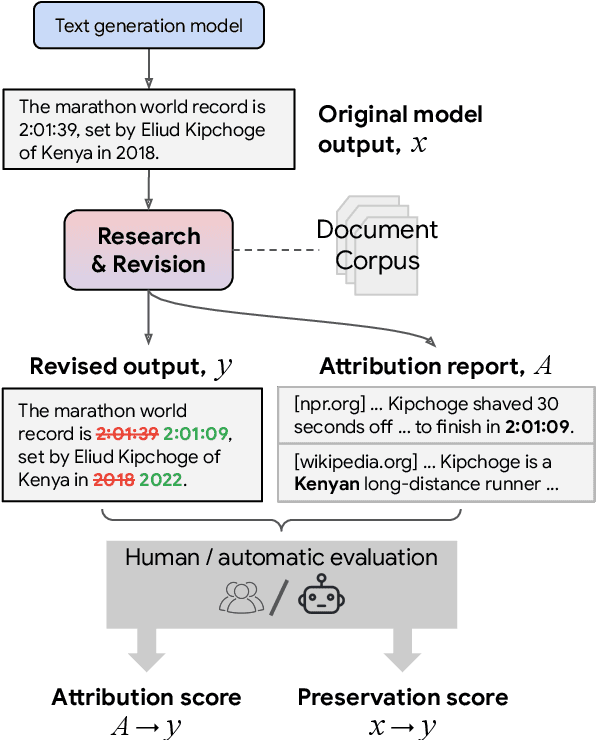

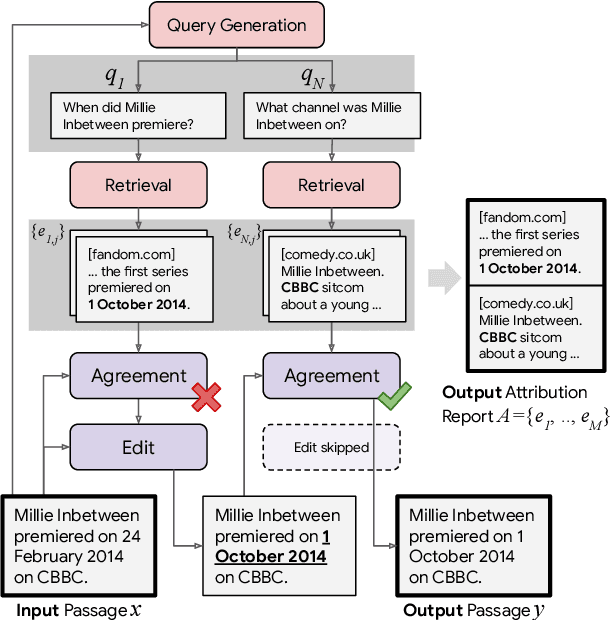

Abstract:Language models (LMs) now excel at many tasks such as few-shot learning, question answering, reasoning, and dialog. However, they sometimes generate unsupported or misleading content. A user cannot easily determine whether their outputs are trustworthy or not, because most LMs do not have any built-in mechanism for attribution to external evidence. To enable attribution while still preserving all the powerful advantages of recent generation models, we propose RARR (Retrofit Attribution using Research and Revision), a system that 1) automatically finds attribution for the output of any text generation model and 2) post-edits the output to fix unsupported content while preserving the original output as much as possible. When applied to the output of several state-of-the-art LMs on a diverse set of generation tasks, we find that RARR significantly improves attribution while otherwise preserving the original input to a much greater degree than previously explored edit models. Furthermore, the implementation of RARR requires only a handful of training examples, a large language model, and standard web search.
CARLS: Cross-platform Asynchronous Representation Learning System
May 26, 2021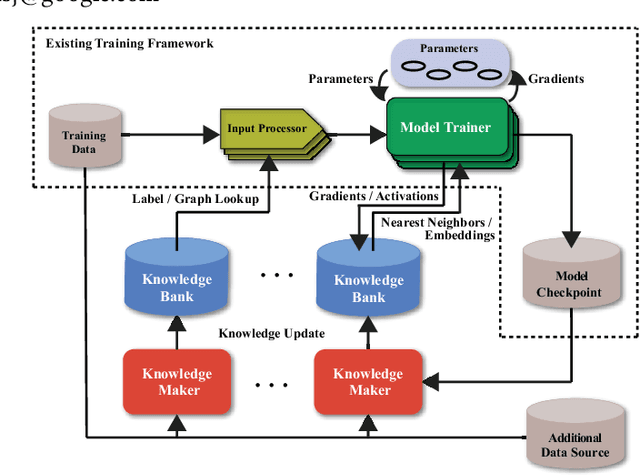

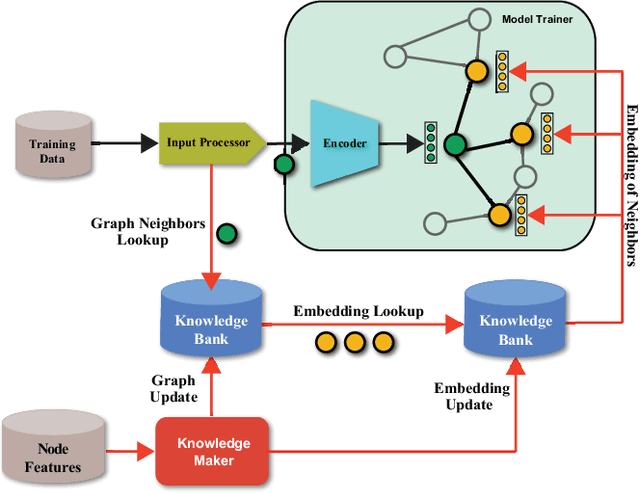
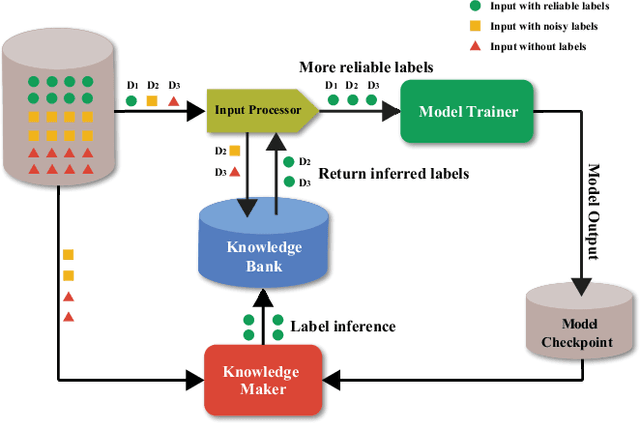
Abstract:In this work, we propose CARLS, a novel framework for augmenting the capacity of existing deep learning frameworks by enabling multiple components -- model trainers, knowledge makers and knowledge banks -- to concertedly work together in an asynchronous fashion across hardware platforms. The proposed CARLS is particularly suitable for learning paradigms where model training benefits from additional knowledge inferred or discovered during training, such as node embeddings for graph neural networks or reliable pseudo labels from model predictions. We also describe three learning paradigms -- semi-supervised learning, curriculum learning and multimodal learning -- as examples that can be scaled up efficiently by CARLS. One version of CARLS has been open-sourced and available for download at: https://github.com/tensorflow/neural-structured-learning/tree/master/research/carls
 Add to Chrome
Add to Chrome Add to Firefox
Add to Firefox Add to Edge
Add to Edge